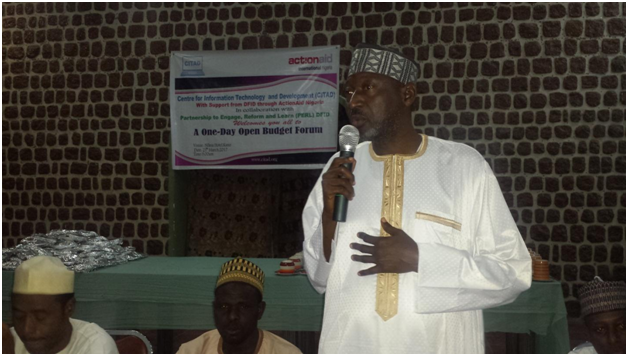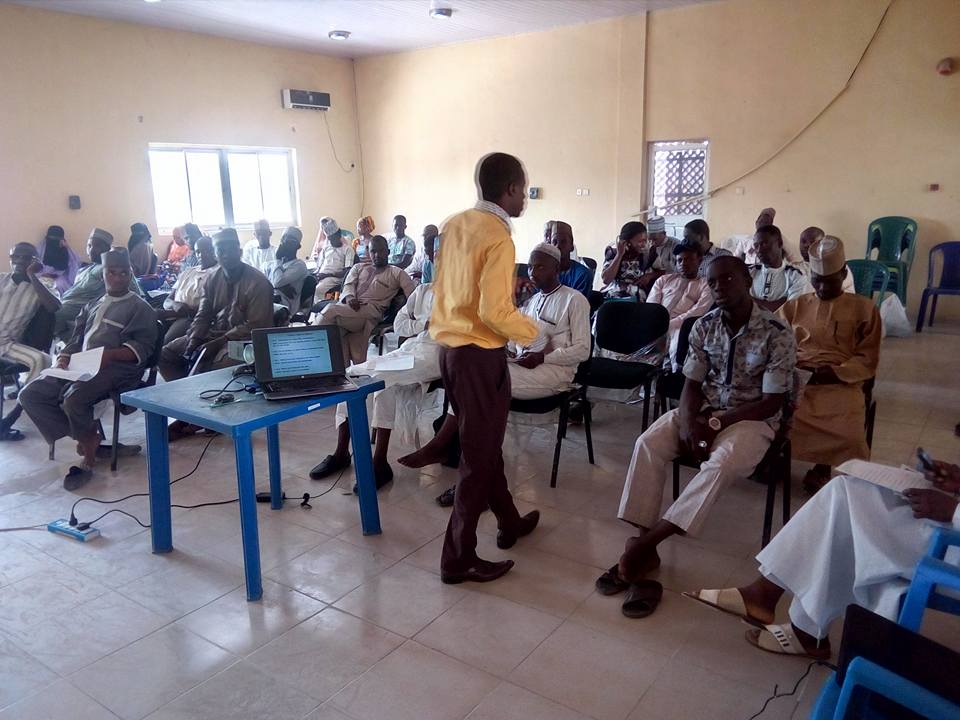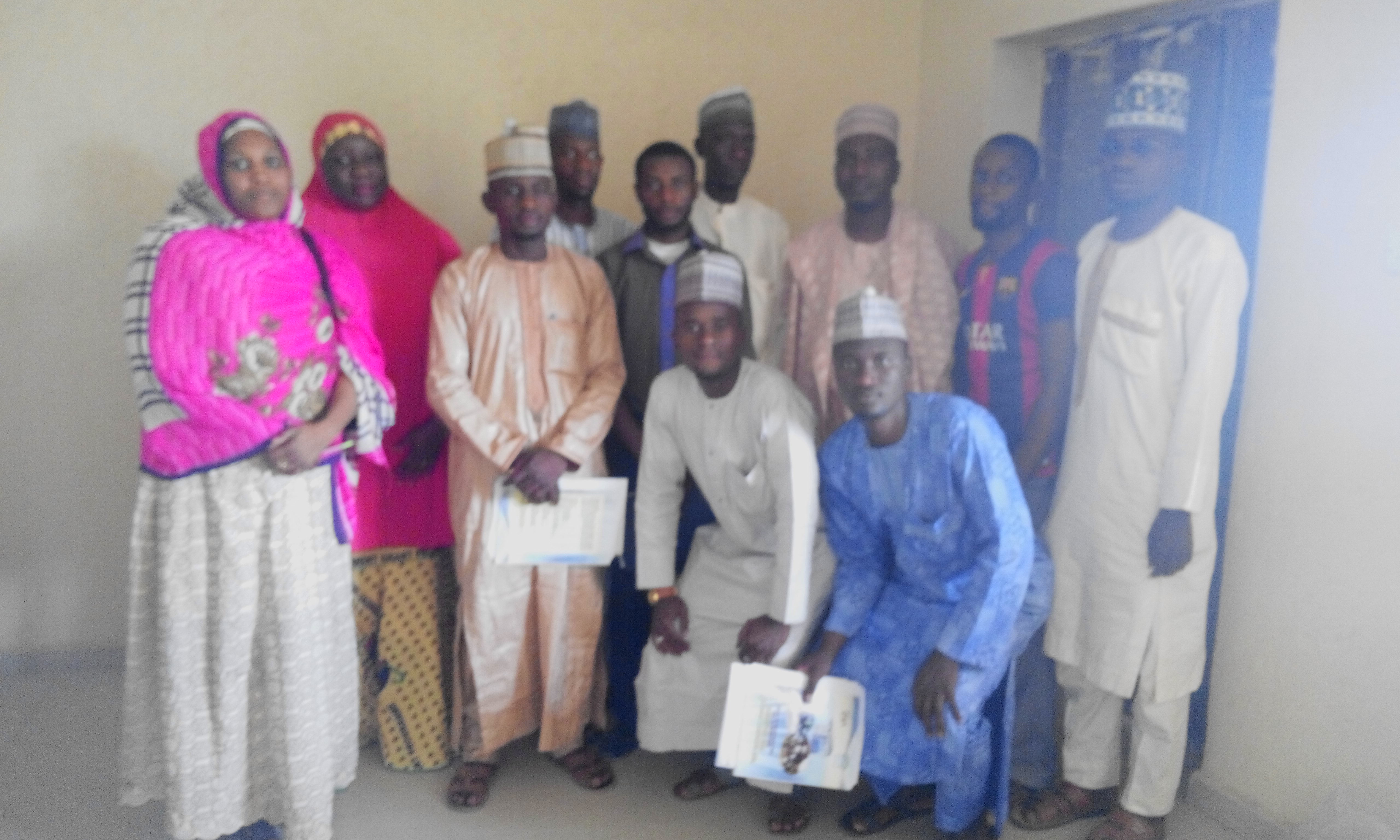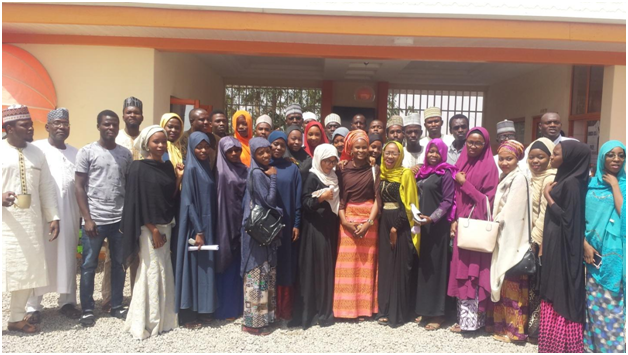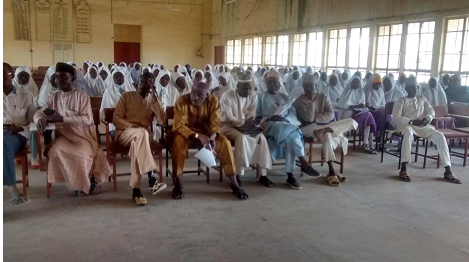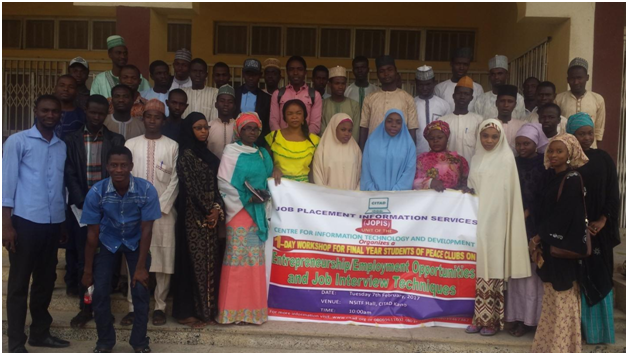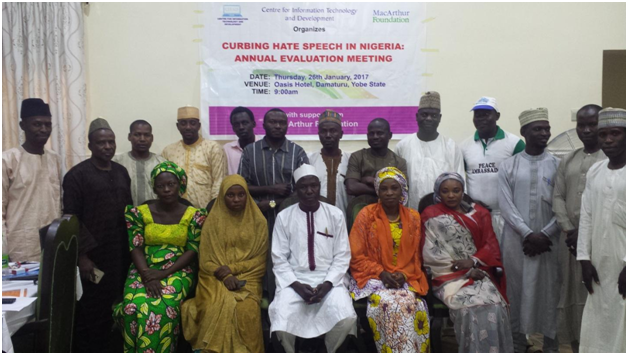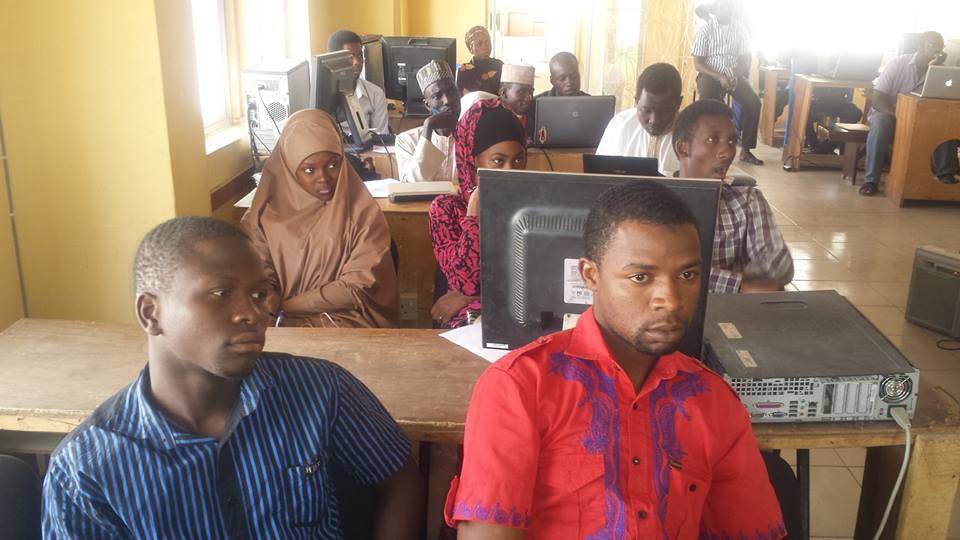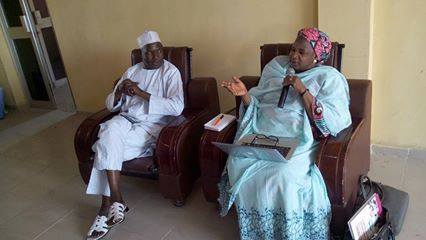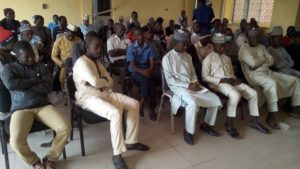THE SGF SHOULD GO
Welcome
I will like on behalf of the Centre for Information Technology and Development (CITAD) to welcome you to this press conference on issues that has grave humanitarian consequences and serious implication to the national consensus to fight corruption. This is unsatisfactory mane in which the government is handling the accusation of corruption in the management of funds meant to address the problems and needs of internally displaced persons arising from the Boko Haram insurgency. CITAD which is running an observatory on the plight of IDPs and the reconstruction process of the north east thinks that if corruption is not properly address, they whole Buhari Plan for the rebuilding and reconstruction of the North East will come to nothing.
The Beginning
You will recall that towards the end of the Jonathan presidency, he set up the Presidential Initiative on North East (PINE) charge with responsibility of coordinating the effort for addressing humanitarian needs in the north east. Although it raised money in addition to that appropriated by the Federal Government for its operation, PINE never really did much. Thus when the Buhari Presidency was inaugurated, he announced the established of the Presidential Committee on North East Initiative (PCNE) which was to supplant PINE.
However, for whatever reasons that only later people understood, the SGF stalled the inauguration of PCNE and instead the office took it upon itself to directly run the humanitarian programmes that PCNE should do using the money left by PINE. When pressure on the need to inaugurate PCNE mounted, the Office of the SGF decided to go into a spending spree in order to exhaust the money available and started to award all sort of frivolous contracts. One of these was the over N200 million to clear ‘invasive plant specie’ in Yobe State to company belonging to the SGF, Lawal D. Babachir.
The Humanitarian Crisis
It is an understatement to say that a major humanitarian crisis has befallen our management of internally displaced persons (IDPs). Several credible reports have surfaced in the last couple of weeks detailing the ranging calamitous starvation thousands of IDPS dying for lack of food. This avoidable calamity is the result of three related factors. First, the country was ill prepared to handle a disaster of that magnitude, lacking in the necessary institutions and structures to attend to IDPs need. Second is the inhuman diversion of food and other humanitarian needs of IDPs by callow government officials. Third is the mega corruption in the massive stealing of money meant for addressing the needs of IDPs.
With respect to the first issue we note that both the executive and legislative arms of the federal government have taken steps to address the lacuna. While the National Assembly has legislated for the established of the North East Development Commission (NEDC), the Executive has set up the Presidential Committee on North East Initiatives (PCNE), changed with the responsibility for the reconstruction and rebuilding the region as well as the resettling of IDPs. While the PCNE was slow in picking off, having been announced the since early days of the regime, we are happy that it has eventually hit the road. Â We also hope the NEDC Bill be quickly assented to by the President.
On the second issue, both the Federal and Borno State governments have set up committees to investigate the diversion of food by government emergency officials. This is however where the problem lies. This second problem cannot be satisfactorily addressed without addressing the third which is mega corruption. This regime was voted largely on account of its promise to deal with corruption and must squarely this problem.
The Not Satisfactory Handling of the Case by the Presidency
The Presidency’s handling of corruption accusation in the within the government agencies as it is now leave much to be desired. Of greater concern is the accusation around the Secretary to the Federal Government (SGF), Lawal D. Babachir who has been accused of awarding multi-million wasteful contracts to his company for grass cutting. While many people suspected of corrupt acts have been promptly arrested and detained while being subjected to interrogation and investigation by the EFCC, the President has simply opted not to do allow the same in the case of Babachir.
The fact of the contract is well established. This fact has been investigated by the Senate Adhoc Committee on Mounting Humanitarian Crisis in the North East. On the Basis of this, the Senate requested the Presidency to remove Babachir from his post as SGF. The President in turn replied the Senate that he could not grant their prayer on the basis that one, Babachir was not given fair hearing, and secondly, the report of the Committee was not signed by all the members of the sub-committee. It is curious that the same presidency that order the invasion of the houses of Judges suspected of corruption who were never given any hearing could now deploy the argument of fair hearing to protect Babachir. In any case, the Senate did invite him and he deiced to not honor the invitation. We support the need to give all and sundry fair hearing, but in the circumstance that a person decided on his or her own not avail himself or her with the opportunity for fair hearing, that should not become an excuse for inaction.
The setting up of an administrative committee by the Attorney General of the Federation and Minister of Justice is totally out of character with the manner that this regime has been prosecuting the anti-corruption agenda. It has in many cases opened up the process to the public, providing the media with reports, almost bordering on media trial. But this all is ok for those that that are not in the loyalty book of the government. Loyalists require a different approach. This in itself can only be described as corruption of procedure and corruption of any type, is simply corruption to be fought. That is why the President has to rethink his handling of this particular case. We need not recall the words of the President at his inauguration when he said “he belongs to no oneâ€. The indication now is that he belongs to some people who by his action can be shielded from consequence of their corrupt acts.
Why Babachir Should Go
There are three issues around the issue of the SGF. First is that cutting grassing in the face of thousands of IDPs starving to death for lack of food was a misplacement of priority and clear misappropriation of funds. It is no less different than from the case of the former NSA who diverted money meant for buying arms to fight the Boko to buying votes the second term bid of the former President. We think this alone is enough for a regime of probity and commitment to the reconstruction of the North East to show the SGF the way out.
The second issue is the magnitude of money compared to the purported work done. Clearly the case of inflating figure can be established. This is corruption proper. This money could have saved the lives of many IDPs who have sadly died because there is no food to feed them. But the president whose name has been associated with probity is shielding off this person from prosecution and indeed rewarding him by retaining him at the office of the SGF.
The third issue is conflict of interest. Babachir was a Director of RholaVision Engineering Ltd which benefited from the inflated contracts of over N200 million to clear ‘invasive plant specie’ in Yobe State. Even if had resigned immediately to his appointment as SGF, to have given Global Vision Ltd the contract is a clear case of conflict of interest since he is actually an interested party in the company. It is interesting to note that RholaVision Engineering Ltd is an ICT firm and not an environmental company and technically not competent for grass removal work.
On the strengths of these arguments we had expected the President to have along asked Babachir to step down and wait until investigations have cleared him of these before setting is legs into the office of the SGF. This he has not been done. The failure to do this has sent very strong wrong signal that the anti-corruption agenda of the regime is politically motivated and not anchored on national interests. This would be sad for someone who has made a name as a man of integrity, committed to fighting corruption wherever.
This has sadly thrown the anti-corruption agenda of the regime into disrepute. We believe the President can still retrieve it and there is only one way to do so: the immediate suspension of Babachir from office to face thorough investigation. We at CITAD strongly call on the President to do this. Â We call on the Attorney General of the Federation and Minister of Justice to hand over the file to both the EFCC and ICPC and implore Babachir himself to honourably resign until he has been cleared by competent agencies.
We support the President’s declared commitment to fight corruption but we demand that he treats all corruption cases the same way. This is what can assure the public that he truly belongs to all, and not to some people and is committed to combating corruption wherever and by whosoever.
